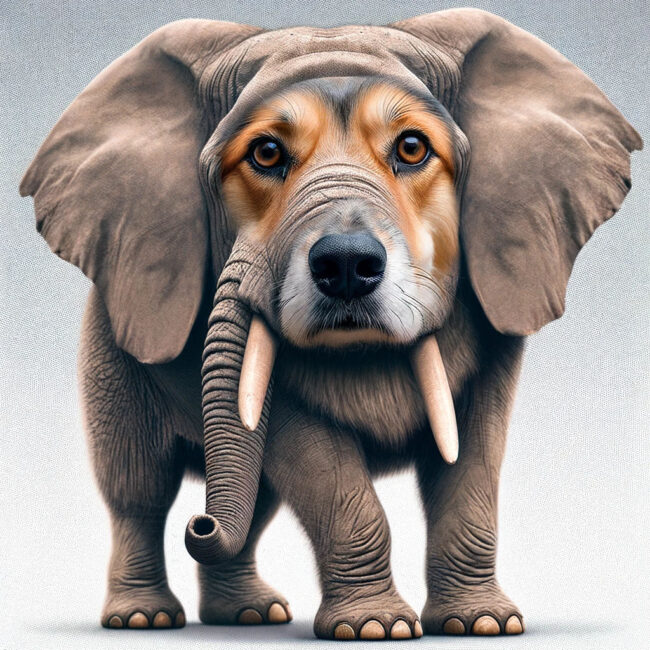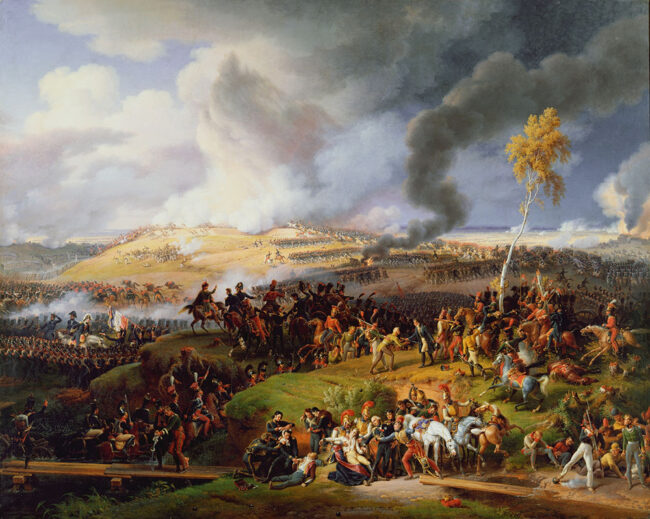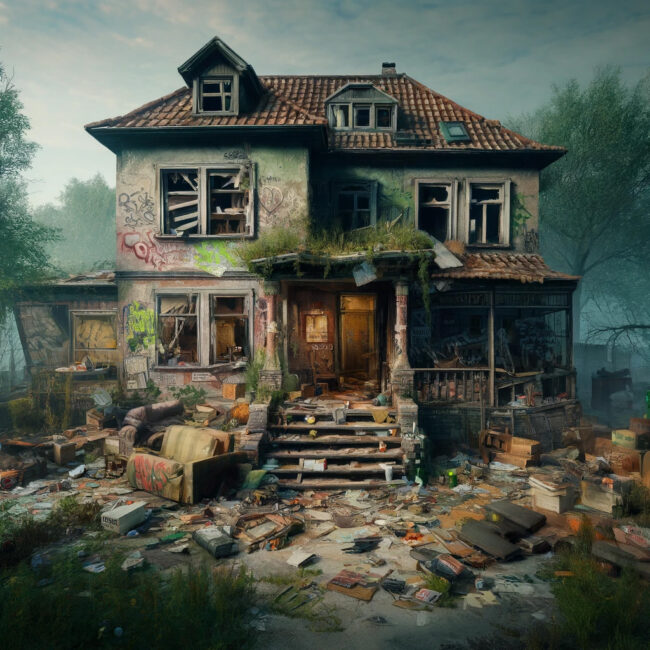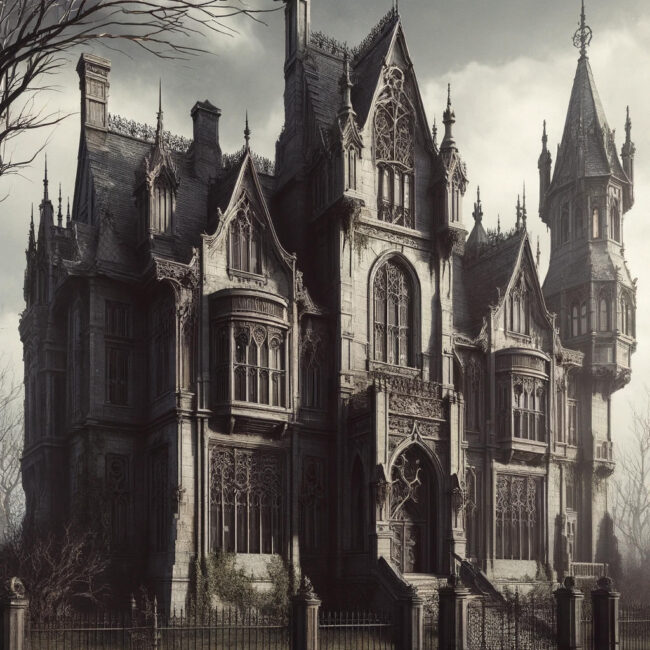Literary fiction is hard to define, but I’m going to try anyway. The debate tends to be poisoned by debates about elitism and being “better” than genre fiction, which I’d like to avoid here. Instead, I want to identify the main components of that thing we call literary fiction.
I love to read good literary fiction, and I try to write it too. But if I’m asked to define literary fiction, I struggle to come up with a precise answer. So I thought I’d write this post to try to clarify what literary fiction is, what it isn’t, and how we can recognise its main components when we see them.
Literary Fiction vs. Genre Fiction?
Literary fiction is often defined in contrast to genre fiction, but I don’t think that’s accurate or helpful. The idea seems to be that fiction is divided into genres like thrillers, romance, crime, and sci-fi, and anything that doesn’t fit neatly into one of those buckets is dumped into an extra bucket marked “literary fiction”.
I disagree with this distinction for a couple of reasons.
Firstly, there’s a lot of overlap: literary fiction can fit into a genre, and genre fiction can be literary. For example, Kazuo Ishiguro is a Nobel-Prize-winning author of literary fiction, but I’ve read a couple of novels by him, Never Let Me Go and Klara and the Sun, that seem to me to be both science fiction and literary fiction. I’ve also read plenty of literary crime novels, like Tail of the Blue Bird by Nii Ayikwei Parkes and An Isolated Incident by Emily Maguire.
Secondly, it has become tainted by arguments about elitism, with the implication traditionally being that literary fiction is better and more worthy than genre fiction, which leads fans of genre fiction quite rightly to fight back. That’s not a battle that I’m interested in fighting here. It doesn’t seem to go anywhere, and it certainly won’t help us achieve a clear definition.
Thirdly, this way of looking at literary fiction doesn’t get us any closer to a useful definition of what it really is. Just saying it’s “not genre fiction” is like defining an elephant by saying it’s not a dog. It’s vague and imprecise, and I think we can do better.

Literary Fiction Defies Conventions
There is a grain of truth in the “literary fiction vs. genre fiction” divide. What’s true, I think, is that literary fiction tends to defy the conventions of a particular genre. In fact, it often defies conventions altogether.
For example, John Banville writes both literary fiction and crime novels. In his case, it’s very clear to see the difference between the two—so clear, in fact, that he used to publish his crime fiction under the pseudonym of Benjamin Black.
Banville’s crime novel Snow, for example, is a formulaic police procedural. It dutifully follows the conventions of the genre, and there’s nothing surprising about it. So although he’s primarily known as a literary fiction writer, I wouldn’t call Snow a “literary crime” novel. It’s genre fiction.
The two examples I mentioned in the previous section, on the other hand, overturn the reader’s expectations by refusing to provide a neat resolution and by bringing in different themes like the clash between traditional and modern Ghanaian culture in Tail of the Blue Bird and the pervasiveness of violence against women in An Isolated Incident. Both these themes complicate the process of solving the crime and make the novel about something else altogether. They use some of the conventions of the genre but play with them and create something different.
Exploring Themes
This leads us on to another characteristic of literary fiction. It tends to be more interested in themes and symbols than in simply telling us what happened.
Many of the components of literary fiction I’m talking about here are not black and white: it’s not that all literary novels have them and all non-literary novels don’t. I think of it more as a continuum of some kind. Literary fiction tends to place more emphasis on exploring themes.
Tolstoy’s War and Peace, for example, most obviously explores themes of war and peace, but it also has a lot to say about class divides, tradition vs. modernity, the power of social conventions to shape our lives, etc. Through the many different characters in the book, Tolstoy shows us different approaches to life, with varying results. He’s not telling us what to think but presenting us with different models, and the conclusions we reach may be different depending on what we bring to our reading of the book. For example, I remember sympathising with the naive but well-meaning Pierre who stumbles into a disastrous marriage and has to work hard to set his life on a course that means something to him rather than to society. But other readers may hate Pierre and sympathise more with his wife Helene, in which case the lessons they draw would be totally different.

Good literary fiction allows for these multiple readings, even encourages them. The writer’s personal views may sometimes come across in how they choose to shape the novel—in Naomi Alderman’s recent novel The Future, for example, the way she draws the characters of the tech billionaires and the fate she assigns for them makes it pretty clear what she thinks on the theme of the influence of Big Tech. But there should still be room for the reader to make their own judgments on plenty of themes, as there is in Alderman’s book.
Symbols and Metaphors
Literary fiction often makes extensive use of symbols and metaphors, not just to describe a particular thing as being like some other thing, but as a way of exploring the themes we just talked about.
For example, in Lote by Shola van Reinhold, a novel that explores themes of art, beauty, race, and sexuality, the main character Mathilda becomes obsessed with uncovering the history of a forgotten Black poet called Hermia Druitt. There’s a very powerful scene where Mathilda discovers Hermia’s old apartment, which had been walled in years before to accommodate an archive of white notebooks in the building where she’s currently doing an artist’s residence.
What makes it powerful is the resonance of the visual metaphor, which ties in with the central themes of the novel, about the ways in which the lives and works of Black artists and writers are obscured and erased to make yet more space for the dominant white narrative.
Sometimes, the symbolism is less striking than this, but the writer uses linked symbols and metaphors that recur throughout the book, so that while each individual occurrence may not seem particularly noteworthy, the repetition creates a meaning of its own. In C by Tom McCarthy, for instance, the main character Serge is born with a caul, and the instances of obscured vision multiply throughout the book, especially at important moments, e.g. the strange gauzy film that descends across Serge’s eyes after the death of his sister. This recurring metaphor can tell us something about Serge’s character and perhaps more broadly about our own lives and the limits of what we can perceive.
Jorge Luis Borges makes extensive use of symbols and metaphors, with some of them recurring not just within a single work but throughout a series of short stories written across decades. Labyrinths occur all over the place, as do mirrors and circles.
What they mean is of course open to interpretation, but I think they’re connected with a couple of themes that also crop up regularly: infinity and mortality. Circles are “infinite” shapes, with no beginning and no end, and mirrors can create infinite reproductions of the world if positioned opposite each other. And life can often feel like a labyrinth through which we wander, seeking the end but also not wanting to find it because that will end the experience.
Character vs. Plot
In Aspects of the Novel, E.M. Forster talks about how character and plot are often in opposition in a novel. Sometimes, characters have to be subservient to the plot, for example by keeping something secret and only revealing it later on, when it makes more sense for the plot. Faithfully describing a character’s full development, on the other hand, will often involve revealing plot twists before the ideal moment.
So let’s return to that idea of the continuum and imagine one with “Character” at one end and “Plot” at the other. In general, literary fiction exists more at the “Character” end of the scale. It tends to be more concerned with developing believable characters more than creating a cliff-hanging plot.
I’m aware that this is something of a false dichotomy. There are plenty of books, both literary and non-literary, in which the characters are very convincing and the plot is a real page-turner at the same time. But remember we’re talking about general tendencies here, rather than anything black and white. A romance novel or a detective novel without a compelling plot would be a failure, but there have been plenty of acclaimed literary novels where the plot was far from gripping. I’ve mentioned some in this post. Similarly, it’s quite possible to enjoy a good detective novel in which the characters are more “types” than fully rounded individuals but the mystery is compelling and is resolved in a satisfying way. A literary novel in which the characters don’t feel real, on the other hand, is usually a hard slog.
Experimentation
I mentioned defying conventions earlier, and this leads on to another characteristic of literary fiction: it’s often experimental in some way.
The level of experimentation and novelty varies widely, of course. Ulysses by James Joyce is a well-known example of a novel that came up with a whole new way of writing. Other times, it’s more subtle, and some literary fiction is not really “experimental” in terms of its form, but has some other element of novelty.
Sometimes, this experimentation finds its way into the mainstream. “Stream of consciousness” writing was highly experimental in the time of Joyce and other writers like Virginia Woolf, but we’re now used to it, and interior monologues are common in all kinds of fiction. Likewise, chopping up the chronology and jumping around in time is something we’re now much more accustomed to.
Other times, the experiment remains just that: an interesting diversion that is not widely adopted. The French literary movement OuLiPo (Ouvroir de littérature potentielle) was devoted to exploring new forms and creating “potential literature”. Its members did things like writing novels that avoided using particular letters of the alphabet—not something that really caught on, but an interesting experiment nonetheless.
Experimental writing can be difficult to read but also very stimulating and thought-provoking. It tends to require more concentration to get the most out of it. For example, here’s my reaction to reading The Flanders Road by Claude Simon, a novel that jumps around chaotically according to memory and association rather than logic or chronology.
The overall effect is at first simply confusing and then, when you get used to it, powerfully disorientating. It’s a book I had to concentrate on more than usual, and even then I always felt on edge, never knowing when in mid-sentence the story would shift to something completely different. Often the shifts were so subtle that for a few lines I thought I was still in the main scene on the Flanders Road in World War Two, when in fact things had changed and we were at an earlier stage of the war when dead characters were still alive, or we were later when the war’s over and one of the characters was meeting his dead comrade’s widow, or we had gone back 200 years to the story of a distant ancestor who blew his brains out.
Prose Style
I’ve left this one for last because it’s probably the most difficult to define. Literary fiction is so diverse that there’s no single style of writing that we can identify as “literary”. Also, there’s a danger of slipping back into that “literary vs. genre” divide from before and making lazy judgments about literary prose being inherently “better” than genre fiction. That’s not my intention at all.
Nevertheless, I can usually tell whether a book is classified as “literary fiction” or not just from reading the opening paragraph, so there is something about the prose style that we need to investigate here. Let’s start with a couple of examples from John Banville, since he straddles both camps.
Here’s the opening of his literary fiction novel Birchwood:
I am, therefore I think. That seems inescapable. In this lawless house I spend the nights poring over my memories, fingering them, like an impotent casanova his old love letters, sniffing the dusty scent of violets. Some of these memories are in a language which I do not understand, the ones that could be headed, the beginning of the old life. They tell the story which I intend to copy here, all of it, if not its meaning, the story of the fall and rise of Birchwood, and of the part Sabatier and I played in the last battle.
And here’s the opening of his crime novel Snow:
‘The body is in the library,’ Colonel Osborne said. ‘Come this way.’ Detective Inspector Strafford was accustomed to cold houses. He had spent his earlier years in a great gaunt mansion like this one, then he had been sent away to school to a place that was even bigger and greyer and colder. He often marvelled at the extremes of discomfort and misery that children were expected to endure without the slightest squeak of protest or complaint. Now, as he followed Osborne across the broad hallway—time-polished flagstones, a set of antlers on a plaque, dim portraits of Osborne ancestors lining the walls on either side—it seemed to him the air was even icier here than it was outside.
Both are well written, as you’d expect from a writer of Banville’s calibre. But I think the first has some qualities that set it apart from the second. It’s full of vivid imagery, but mostly not of anything that actually happened. I can see the impotent casanova fingering his old love letters, can smell the dusty scent of violets, can imagine the last battle, but these are all symbols and metaphors that refer to important themes in the book.
In the second passage, the language is more grounded in the plot. A murder is introduced immediately, and then we see the arrival of the police inspector who will unravel it. We drift away briefly into memories of his own miserable childhood, but then we’re quickly back into a description of the hallway and its icy air.
More than that, I think the first passage has a freshness that’s missing from the second. The language seems more carefully chosen, each word picked for its effect on the reader. For example, I don’t think I’ve ever heard a house described as “lawless” before, so it surprises me and makes me think as I’m reading and wonder what is lawless about it.

In the second, however, phrases like “squeak of protest” are more familiar, as are the physical details like the cold air, time-polished flagstones, the set of antlers, and the family portraits on the wall. The language is more accessible, so it’s much easier to see what’s happening quickly, without needing to interpret too much. The freshest description is probably the “great gaunt mansion”, but even that is something we can picture quite easily, unlike a lawless house.

Perhaps the difference in prose style is connected to the elements we’ve already talked about, like character and plot. In literary fiction, writers tend to put more emphasis on the language and achieve something unique and surprising that makes the reader work a little; in other types of fiction, on the other hand, plot is more important, and the language is more of a vehicle to communicate the plot. In a fast-paced thriller, you don’t necessarily want to pause to think about the meanings and associations of an oddly chosen word; you want to know what happens next.
That’s not to say that literary writing is always flowery or even beautiful. It can be deliberately stark and spare, as in Hemingway or Carver, or it can be written in the voice of a narrator whose language doesn’t correspond to general notions of beauty or ‘literariness’. In that case, though, the language is still carefully chosen and is still doing important work: it’s telling us something about the character of our narrator and helping us to see the world through that person’s eyes.
Of course, many non-literary books use these same techniques, and all good writers pay close attention to their use of language. My argument is simply that literary fiction tends to take this further, whereas other types of fiction may put more emphasis on things like plot and pacing.
What Is Literary Fiction for You?
OK, I think I’ve written enough for now, but I’m sure I still haven’t covered everything. It’s starting to feel like a huge topic that would be better covered by a book than a blog post.
So why not fill in some of the things I’ve missed or correct some of the things I’ve got wrong? What does literary fiction mean for you? Leave your comments below, and let’s get to the heart of it.





There are 19 comments
Here is how I distinguish: literary fiction are the books I keep. They line my shelves and I keep them because I feel like I might reread them. Genre fiction are the books. I usually enjoy, but don’t feel the need to keep.
Ha ha. Your distinguishing differences are much better and much more fat through, and I appreciate them. But if I don’t want to think that deeply about what a book is, I just ask myself keep? Or perhaps ass on?
Pass on, not ass on. Oops.
Hey, thanks! That’s an interesting way to distinguish, and not one I’d thought of. It reminds me that these definitions are often deeply personal. I can think of a few people I know who’d keep the genre fiction on their shelves and pass on the literary fiction. But that distinction works for your reading habits, and that’s the important thing.
I’m with you about not wanting to think too deeply about which category a book belongs in—I’ve been blogging about literary fiction for about 17 years without ever feeling the need to define it before! I think both readers and writers tend to be suspicious of categories like this and just focus on books themselves. I remember attending a talk once where the writer Ismail Kadare said how bemused he felt when people asked him whether he wrote historical fiction—he just tells stories, he said, and some of them happen to be set in the past. Categories tend to be more important in the worlds of academia and marketing, but I think it’s interesting to think about them from time to time anyway.
What a fabulous read this article to start my Saturday!
I have pondered this question as well. Your pictures and examples are so interesting that now I have added some more authors and books to my interest list!
I do agree with your point that the distinction criteria is lacking. The overlap is real, and your criteria to describe literary fiction is fitting. The discussion about plot and character is an interesting one, and again, some literary books have strong plots but maybe it’s true that strong character development is a sign of literary fiction. There’s also the experimentation and style. Yesterday’s experimentation may become today’s normal, but I agree that literary fiction writers, especially those who make a mark -even though sometimes they die before we find them-, redefine, reinvent, or do something new with a purpose, and pose new demands for us readers.
It’s that effusive quality that we recognize and which is hard to identify. I will add, thinking about C.S Lewis, that literary fiction has many layers, and you hinted at that with the different interpretations we all get from our interactions with the characters, and he pointed to the reread ability of the books-he was trying to define what makes a book a classic. I have noticed that literary fiction has an added quality (maybe that’s what they sloppily tried to describe as “better”) that dislodges it from the constraints of time and place. We can read these books again and again and they retain that freshness.
Sometimes I feel the book is the master and it demanded the writer to be written and written in that way. I will dare to add that in most literary books, not the narrator but the real author is somehow invisible, and the reader cannot see any of the resources or strings like we can in a bad puppet show. There can be imperfections in the story, but there is never any element, word, or anything that kicks you out of the book.
Thanks for writing this.
Thanks for the thoughtful response, Silvia. Lots of excellent points here! I particularly like what you said about literary fiction having something that “dislodges it from the constraints of time and place”. It reminds me of something else E.M. Forster wrote in that book I mentioned above—he liked to think of novelists from all periods sitting in a room with pen in hand, all writing simultaneously. So Dostoevsky was in correspondence with Homer, and with the Bronte sisters, and with Han Kang, and so on. The setting is not the important thing—it’s what they have to say about this complex of experience of being human.
The best literary fiction, I agree, has qualities that lift it out of its time and place—I remember reading War and Peace as a teenager in south London and learning more about life from this distant and unfamiliar world than I did from most of what was around me at the time. And we can read them again and again—although I suppose a counter-argument would be that lovers of genre fiction also reread the same books multiple times, perhaps more for the familiarity than the freshness. Or maybe that’s my preference for literary fiction coming through again…
So interesting, and I applaud your attempt to define lit fic. I tend to use the rather loose guidance of whether or not it would turn up in a supermarket book section….
Haha, yep, that works!
Wow, great post!
This is not an easy task.
I think it’s even more nuanced if you consider the evolution of “genre fiction”. For instance these days, I notice (especially in French fiction), how some thriller authors use that genre to address many big issues (you can also see it in eco scifi).
And I would say scifi does work a lot with symbols as well.
I think we are finally starting to consider genre fiction as real literature.
I was just talking with a student recently: we were shocked to realize The Count of Monte-Cristo was NOT present in a very famous French textbook published in 1955!
These days, I think everyone agrees to recognize Dumas’ gifts as a novelist.
Incidentally, the difference I make between genre fiction and literarlly fiction, is that I usually do not listen to literary fiction because I see the stress being more on the style, the writing, and I like to take time to ponder on the words used. And it can be a long book with almost nothing is really happening, where you just bask in the words. Thinking of Proust for instance.
But I listen to mysteries and scifi (also nonfiction), because I find the focus being more on the plot.
Hi Emma, you’re right, it’s not easy to define! And yes, a lot of genre fiction does address big issues—in the case of climate change, it’s probably doing it better than literary fiction right now.
That’s very interesting about your distinction between reading and listening. I know exactly what you mean. I’d find it hard to listen to Proust as an audiobook, but I loved slowly reading all seven books of In Search of Lost Time and bathing in that language. Incidentally, Silvia (who also commented on this post) has just written a very interesting post about this very subject: https://silviacachia.wordpress.com/2025/02/15/2025-my-comeback-year-to-listen-or-not-to-listen-a-readers-dilemma/
Such a thought-provoking post! I so agree with you on many of your points. It is my belief that genre fiction is not somehow “lesser” or “worse” than literary fiction. It just has a different purpose – that’s all. Genre meant to entertain. I am sorry if I repeat some of your statements, but I would say that what distinguishes literary fiction from genre is the attention to language (usually) and the exploration of some deeper theme or character insight. You read genre fiction for a plot, as simple as that. I also agree with you about artificial literary fiction boundaries. Literary fiction can be romance, it can be historical fiction, it can be fantasy (Jonathan Strange). Crime can be literary, too – oh, no doubt about it. Orhan Pamuk, Umberto Eco, and Donna Tart wrote crime mysteries that are most certainly literary, though, in most cases, turned on their head or have some unusual components to them.
Thanks, Diana! Your comment is a good, succinct summary of the main differences, I think. As you say, a lot of the boundaries are blurred, so some of what we say about the characteristics of literary fiction also applies to some genre fiction, and vice versa. But we talk so much about these categories that I think it’s worth trying to pin them down, even if they are not precisely delineated.
Fascinating to read! And I do think you’ve covered all the points I would want to make (with an academic hat on). For shorthand, I would probably say that in literary fiction, the writing style is just as important as the plot – the writing asks for attention rather than getting out of the way to make the story seem as transparent as possible. And then literary fiction often embraces a theoretical or philosophical dimension – as you discuss with themes or the use of experimentation. All these things you have covered and much better than I just have! All this being said, I think that literary genre fiction (particularly around crime) has offered some of the most intriguing texts of the end of the 20th/start of 21st century. Got to love writers – they are always thinking of ways to push the boundaries and mix things up!
Thanks! I found it surprisingly difficult to write this post, so I’m glad I didn’t miss any major points. As I was writing I kept thinking of the American judge who was ruling on an obscenity trial and, instead of coming up with a precise definition of obscene material, just said: “I know it when I see it.” That’s more or less the definition of literary fiction that I’ve been using until now, but I enjoyed hacking through the weeds to get at something a bit more clearly defined.
I definitely agree about those blurred boundaries and the rise of literary genre fiction. It makes traditional definitions harder to hold onto but the reading experience so much richer!
You have a literary v genre fiction heading, but after reading all your points, I’m wondering if you would say that literary fiction is also a genre?
Good question! It’s definitely a type or category, which I suppose by definition means it’s a genre. But I’m so used to thinking of genre fiction as a separate entity that it feels weird to me to call literary fiction a genre. We also tend to expect certain conventions within genres, and the best literary fiction is often about resisting or subverting conventions. So I’d argue for it as a category that exists outside of genres, but I don’t feel on very solid logical ground as I type that sentence 🙂
I see what you’re saying. I have thoughts though, among them the fact that genres were invented by publishers to sell more books. But also on what the notion of genre actually is as well as the perils of the idea of literary fiction being a “category” that tends to become a default standard by which all else is measured. Further than that I can’t articulate at the moment. I’ll let the thoughts swirl and see if anything comes of them 🙂
Good point about genres as marketing categories! I think both writers and readers tend to resist books being sorted neatly into boxes, but publishers love boxes (“You liked this, so you’ll like that!”). Maybe that’s why it took me 15 years to write this post 🙂 Would love to hear any more thoughts that come out of the swirling!
Part of me really wants to contribute to this, but you have already had plenty of great responses, observations, comments, and contributions.
Anyway, a bigger part of me just can’t stop staring at that DogElephant or ElephantDog. So I really can’t do anything else.
Aha, paralysed by the ElephantDog! It is quite mesmerising, isn’t it? 🙂